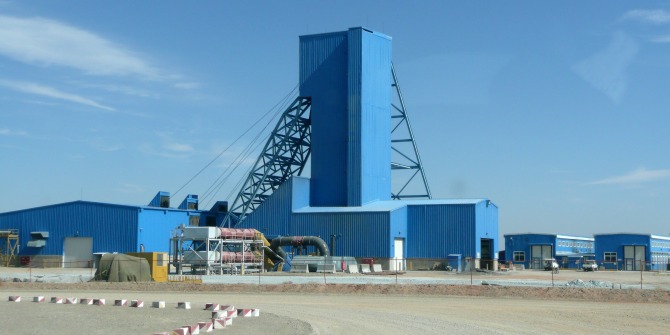
Overall, the pandemic has been bad – often very bad – for business in the short term. In the long term, however, it creates opportunities for innovation and efficiencies in richer nations and unprecedented growth and development in poorer ones.
This does not detract from how bleak the immediate picture can be. COVID restrictions have meant that many businesses, particularly in retail and hospitality, were forced to shut down for extended periods, with some shutting for good or continuing to trade on a knife edge. There has also been a secondary effect on employee productivity. Many workers were simply not set up for working from home and lack the space, infrastructure and living situation that is conducive to work. And the bigger picture is even more challenging, with a global downturn forecast and many major economies entering what are expected to be lengthy recessions.
But crises, and the societal and economic changes they bring about, do create opportunities. It is those opportunities that business leaders must capitalise on. With the exception of nightclubs and airlines, COVID may in the long-term be a blessing in disguise for business.
Sometimes it takes crises to drive progress. The tragedy of the second world war created the momentum for the creation of international institutions such as the UN, World Bank and IMF. It is difficult to imagine an international order without those bodies, which were all established at the end of the war. The conflict also drove more women into the workplace, with societal and economic benefits that we still enjoy.
Similarly, I predict that the pandemic will speed up the digitalisation of the world, allowing businesses in wealthier (and pricier) parts of the world to lower their costs and increase profitability, and workers and service providers in the global south to access new markets and opportunities.
Perhaps in anticipation of this, the economic climate is already positive in China and Bangladesh, for example. Both countries have brought the virus under control with tech-led approaches and are now focused on providing goods and services to the rest of the world, with healthy GDP growth forecast.
In industrialised nations, the pandemic’s biggest legacy will be virtualisation. Rather than businesses spending a significant percentage of their bottom line on office costs and bloated payrolls, a more flexible way of working has been embraced – often with enthusiasm by both employees and employers.
As well as lowering corporate costs and reducing barriers to entry for startups, this can lead to higher motivation and productivity for staff who have a newfound sense of work-life balance and control over their working styles.
But the big win will be in developing countries, particularly for micro businesses and freelancers. Bangladesh has over 600,000 IT freelancers – one of the largest online labour communities in the world. This number is rapidly rising because of digitisation of the country coupled with a high unemployment rate amongst educated young workers. This is another example of a crisis (in this case unemployment) creating new opportunities. Those workers often have all the attributes required of highly-paid workers in London or New York – except for a work visa.
If the right infrastructure can be provided to these freelancers and micro businesses, they can be the fuel that powers innovation and entrepreneurship in developed economies, as well as being an unprecedented source of foreign investment for countries like Bangladesh in the work-from-home era.
This infrastructure and support means providing universal broadband, easy access to banking and money transfers for receiving payments, and a tech-savvy workforce to allow for recruitment and expansion. These are all policies that Bangladesh was implementing pre-COVID through the government’s ICT Ministry. It is heartening to see that the pandemic has sped things up.
Ultimately, global remote working based on motivated, skilled freelancers can provide investment and business opportunities. It can also reduce global inequality more effectively than any humanitarian aid programme.
This is true even for the most vulnerable communities. The Migrant Nation Foundation, the UNDP and a2i (the Bangladesh government’s flagship digital transformation programme) have joined forces to enable hundreds of thousands of young refugees to earn a living through online freelancer marketplaces like Freelancer and Upwork.
The refugees are located in Bangladesh, Thailand, Turkey and Uganda. And their potential clients can be located anywhere.
‘Digital livelihoods for displaced people’ is a sign of things to come. I believe that in less than a generation, we will look back at 2020 as the year we pivoted towards a more united, equitable world, brought together by digitisation and virtual business.
♣♣♣
Notes:
- This blog post expresses the views of its author(s), not the position of LSE Business Review or the London School of Economics.
- Featured image by Ali Yahya on Unsplash
- When you leave a comment, you’re agreeing to our Comment Policy
 Anir Chowdhury is a U.S. techpreneur turned Bangladeshi govpreneur serving as the policy advisor of the Bangladeshi government’s flagship digital transformation program, a2i. He is also a member of the prime minister’s Digital Bangladesh Task Force.
Anir Chowdhury is a U.S. techpreneur turned Bangladeshi govpreneur serving as the policy advisor of the Bangladeshi government’s flagship digital transformation program, a2i. He is also a member of the prime minister’s Digital Bangladesh Task Force.






The current situation will push companies from various industries to rethink the role of AI in business development, which will lead to an increase in the number of new projects in this direction. Sounds optimistic: he economic climate is already positive Bangladesh.